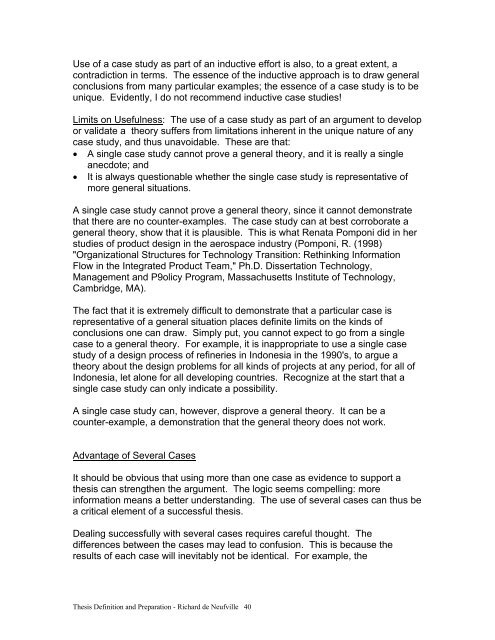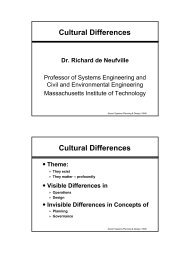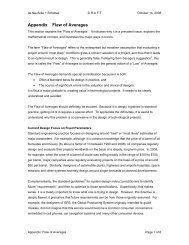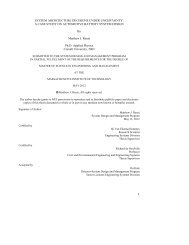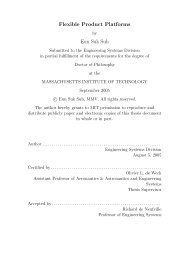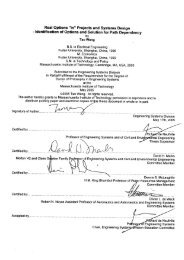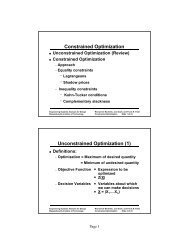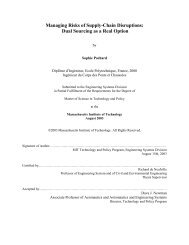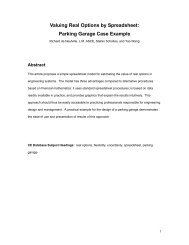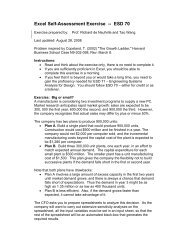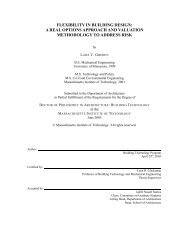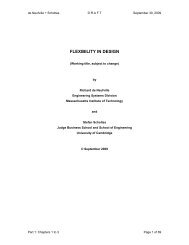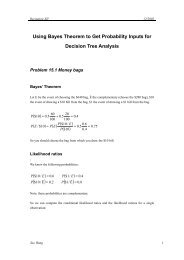Richard de Neufville's TPP SM Thesis Manual - Title Page - MIT
Richard de Neufville's TPP SM Thesis Manual - Title Page - MIT
Richard de Neufville's TPP SM Thesis Manual - Title Page - MIT
- No tags were found...
You also want an ePaper? Increase the reach of your titles
YUMPU automatically turns print PDFs into web optimized ePapers that Google loves.
Use of a case study as part of an inductive effort is also, to a great extent, acontradiction in terms. The essence of the inductive approach is to draw generalconclusions from many particular examples; the essence of a case study is to beunique. Evi<strong>de</strong>ntly, I do not recommend inductive case studies!Limits on Usefulness: The use of a case study as part of an argument to <strong>de</strong>velopor validate a theory suffers from limitations inherent in the unique nature of anycase study, and thus unavoidable. These are that:• A single case study cannot prove a general theory, and it is really a singleanecdote; and• It is always questionable whether the single case study is representative ofmore general situations.A single case study cannot prove a general theory, since it cannot <strong>de</strong>monstratethat there are no counter-examples. The case study can at best corroborate ageneral theory, show that it is plausible. This is what Renata Pomponi did in herstudies of product <strong>de</strong>sign in the aerospace industry (Pomponi, R. (1998)"Organizational Structures for Technology Transition: Rethinking InformationFlow in the Integrated Product Team," Ph.D. Dissertation Technology,Management and P9olicy Program, Massachusetts Institute of Technology,Cambridge, MA).The fact that it is extremely difficult to <strong>de</strong>monstrate that a particular case isrepresentative of a general situation places <strong>de</strong>finite limits on the kinds ofconclusions one can draw. Simply put, you cannot expect to go from a singlecase to a general theory. For example, it is inappropriate to use a single casestudy of a <strong>de</strong>sign process of refineries in Indonesia in the 1990's, to argue atheory about the <strong>de</strong>sign problems for all kinds of projects at any period, for all ofIndonesia, let alone for all <strong>de</strong>veloping countries. Recognize at the start that asingle case study can only indicate a possibility.A single case study can, however, disprove a general theory. It can be acounter-example, a <strong>de</strong>monstration that the general theory does not work.Advantage of Several CasesIt should be obvious that using more than one case as evi<strong>de</strong>nce to support athesis can strengthen the argument. The logic seems compelling: moreinformation means a better un<strong>de</strong>rstanding. The use of several cases can thus bea critical element of a successful thesis.Dealing successfully with several cases requires careful thought. Thedifferences between the cases may lead to confusion. This is because theresults of each case will inevitably not be i<strong>de</strong>ntical. For example, the<strong>Thesis</strong> Definition and Preparation - <strong>Richard</strong> <strong>de</strong> Neufville 40


